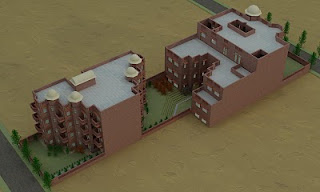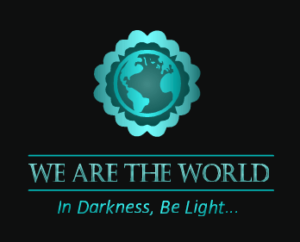 The 3 D images of planet why truly gave substance to a long time dream and brought in a new set of apprehensions and nerves. What till now was a sedate yearning tucked away in the recesses of one’s mind suddenly sprung to life. Dreams were becoming reality and it was scary.
The 3 D images of planet why truly gave substance to a long time dream and brought in a new set of apprehensions and nerves. What till now was a sedate yearning tucked away in the recesses of one’s mind suddenly sprung to life. Dreams were becoming reality and it was scary.
Many found the images amazing and wonderful and the kudos came pouring. In the midst of it all came a much needed dampener: would the idea work at all. I normally would have pooh poohed the note of caution as I often had in the past when planet why still lived in the realm of dreams but not now. I had to listen to all voices. Particularly today when we were a step away from realising a dream. It was perhaps the last chance one had to review things calmly and dispassionately before it was too late. So no matter how difficult and wearisome, it was time once again to write an apologia for planet why.
So what is planet why and why should it see the light of day? That is the question. Right from the outset planet why addressed two almost existential questions that had been plaguing us at pwhy. The first one was humane and concerned the plight of our very special children and young adults. These were the handful of lost souls that had been guided to the portals of pwhy by an unseen hand. We all knew that they needed to be cared till the end of their lives and thus was seeded the idea of a residential programme that had to outlive those who steered pwhy. Planet why was thus born. The second question was more materialistic in nature and addressed the issue of the autonomy of project why and its ability to raise its own resources. Planet why would also be a guest house that would generate funds and thus support not only the residential programme but the rest of pwhy’s initiatives.
It is easy to vindicate the first question as everyone would agree that our special children deserve but the best and keeping in mind the realities prevailing in India we know that they need life long care and the chance to live and die with dignity. Planet why would ensure just that. The second one, the sustainability of project why, is perhaps a little more difficult to defend. Some may contend that it borders on hubris. Many successful ventures close when time comes and why should it not be the case with pwhy. Others may profess that the price tag of planet why is too huge to be justified and that there may be other ways to ensure sustainability. The more cynical ones would argue that nothing needs to be perennial, and that wisdom lies in knowing that.
I will try and address each of these issues. There is no misplaced ego in wanting pwhy to live beyond me. I admit that the idea of seeing it all dwindle and fade away is difficult to accept but that in no way is the reason to seed planet why. I have often been asked what would happen to pwhy after I exit this world and the thought has kept me awake many nights. And not for any hubristic reason at all. My fears have been for those who depend on us in toto be it Manu and his friends who might find themselves on the street or the eight little souls who study in boarding school and still have a long way to go. What would happen to them? They need to be secured and planet why is for them. One could rebut this by saying that there may be other less expensive ways to do that. Touché! Yes there are. One could for instance create a corpus fund the interest of which would pay for the needs of these children. But somehow that defeats the very spirit of pwhy. Let me elucidate.
Pwhy was set up to create a model that could be replicated. One of its main mission was to empower local communities to not only steer the education of their children but also take hold of their lives and destinies. We did succeed in a certain manner as all pwhy staff is from the community. The one area however where we were left wanting was undoubtedly fund raising. All our attempts failed or at best fell very short of the targets be it our one rupee programme, our varied sales of products or our sole attempt at running a raffle. Till date fund raising remained in one hand and skills that could not be transferred. The real litmus test was to find a way that could be successfully handed over to the team. When the idea of planet why was first mooted it seemed to be one that could be steered by our team and that is why we decided to explore it further. Running a business is definitely something that can be taught.
But that is not all. Over the past years we have come to realise that imparting education, no matter how efficiently is not sufficient to change the morrows of slum children. While a small percentage of our kids move on to higher studies, the vast majority is unable to do so keeping in mind the present education scenario where either very high marks or large sums of money gives you access to higher education. A simple school leaving certificate with average marks does not get you anywhere. The need for going further was felt by one and all. Planet why could answer that need as it would provide a platform for training our kids in a host of vocational skills thus enabling them to access employment. Not only would be able to train our alumni in hospitality and related activities, but having our own space would allow us to run training workshops in many other fields. This was indeed very tempting.
So as you see planet why has been a well thought idea that aims to cover more than one issues. From providing a dignified life to those forsaken by all to ensuring that eight children complete their education and prove themselves; from ensuring that 500 children complete their schooling to allowing them to learn skills that would ensure their gainful employment, and above all giving to have to those who have steered pwhy till now the chance to show beyond doubt that they are able to run a business successfully.
Two points still need to be addressed to make this apologia honest. The doubt raised was: would it work? Or in other words does the idea make sound business sense. This was indeed our worry and we decided to take a professional approach to the question. With quivering hearts we handed over our busines proposal to world class consultants for a feasibility study. The conclusion is for all to see: In our opinion, the proposed development at Planet Why is a lucrative and financially feasible and one which would be able to generate much higher returns than are typically found in guest houses operating across Delhi.
The last slightly uncomfortable question that needs to be asked as it is one that is in every one’s mind is whether the project is worth the cost that will need to be incurred. May I simply state that the cost of planet why equals what is needed to run pwhy for 5 years and will allow the work to continue for times to come. Is that not reason enough.




